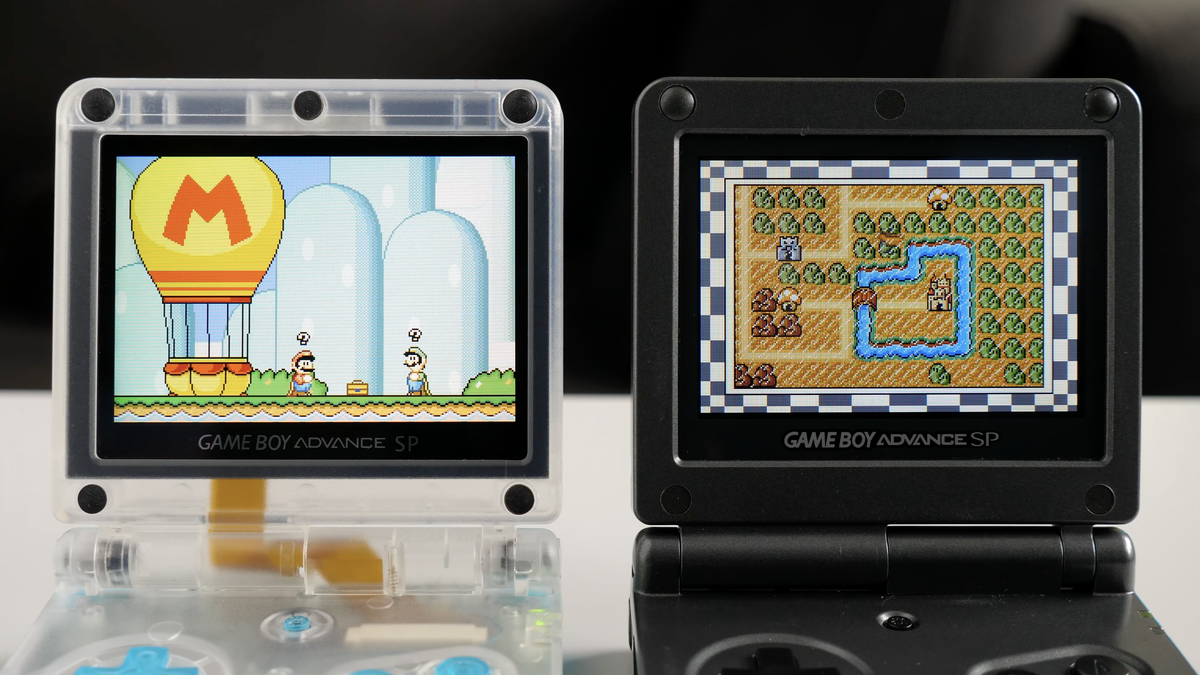The Fender Speaker Is Ideal for Buskers and Musicians, but That's Basically It
Street performers or musicians have a lot to look forward to with this portable speaker, but audiophiles or those looking for a rugged speaker might be disappointed.

Street performers or musicians have a lot to look forward to with this portable speaker, but audiophiles or those looking for a rugged speaker might be disappointed.
We may earn a commission from links on this page.

Credit: Daniel Oropeza
When I first got the Fender x Teufel Rockster Air 2, I didn't really understand where it fit with other party speakers in the market. It's not the loudest, it doesn't have any special features, it's not water- or dust-proof, there's no app, and it lacks full EQ customization. And most puzzling of all, it costs $600.
But the more I spent time with it, the more I understood who this speaker is meant for. Musicians who like to have a portable speaker that gives them the flexibility to play along with their Bluetooth media, add a microphone, or daisy chain it to a bigger amp will get the most out of this speaker. Essentially, this is a busker's dream. But for anyone else looking for a party speaker, the JBL PartyBox Stage 320 is indisputably the best choice—and for the best portable outdoor speaker, look no further than the Soundboks Go.
Fender sent me the Rockster Air 2 speaker—a collaboration with Teufel, a German company that makes audio products—to review. This collaboration is mostly Fender slapping its brand name on the Rockster Air 2, which was released a couple of months before the collaboration.
Pros and cons of the Fender x Teufel Rockster Air 2
Pros
Can play Bluetooth, AUX, microphone, and guitar all at once while daisy chaining to other speakers/amps, all with individual physical volume control
Impressive 58-hour battery at medium volume
Physical bass and treble EQ controls on speaker
Replaceable battery and option for additional external battery
Can play music and charge the battery at the same time with no volume restrictions (can also play with just the power cord and no battery)
Cons
Expensive
Only mono audio channel (can get stereo audio if you connect more than one Rockster Air 2 speaker)
No app or remote control
No full EQ customization or presets
No protection from elements (water or dust)
Specs
Battery Life: Up to 58 hours at mid-volume; takes 3 hours to fully charge. A removable 7.8Ah rechargeable battery and a 12V external battery connection available.
Connectivity: Bluetooth 5.0 with aptX HD and AAC codecs. Party Link Stereo Mode connects to another Rockster Air 2 speaker for stereo sound.
App: None.
Inputs: Has a 3.5mm aux input, XLR output for daisy chaining, 6.3mm stereo jack/guitar input, XLR microphone input, and a USB-C port for charging external devices.
Drivers: One 10-inch woofer, one 1-inch tweeter with 47Hz - 22kHz frequency range.
Power Output: One Class D amplifier, reaching up to 115 dB. Total power output of 80 Watts RMS.
Water Resistance: None.
Size: 12.7×23.2×13.5 inches (H × W × D).
Weight: 31.2 lbs.
First impressions of the Fender x Teufel Rockster Air 2

Credit: Daniel Oropeza
As I do with all of the portable party speakers I review, I took it out to my local soccer rink while hosting a Street FC soccer game. I blasted the speaker at full volume, and it did not reach the thumping levels of the Soundboks Go, which was disappointing, but perhaps I'm spoiled with the 121dB level it reaches. The 115 dB from the Rockster is fine, and it will work for most people. It's capable of filling a 1,200-square-foot indoor home with loud enough sound to have a party. The sound kept its quality even at its maximum volume.

Credit: Daniel Oropeza
The speaker is very capable of taking a tumble. While on the court, one of the players ran into the speaker at full speed, both getting knocked down hard. Neither the speaker nor the player seemed phased though, both carrying on with their duties as if nothing had happened. But if it would've rained while we were out, the speaker would've been no more, since it has no resistance to water (or dust, so be careful taking it out to dusty fields).

Credit: Daniel Oropeza
A standout feature that I haven't seen in other models is the bass and treble rotary knobs on top of the speaker. It makes adjusting the EQ of the Rockster Air 2 a breeze and makes me wonder why other speakers don't do this as well. Since this is a speaker tailored for musicians who want to hook up mics or instruments, having physical treble and bass adjustors makes sense. However, the biggest downside of this speaker is that it has no app, and therefore no way to fully customize the EQ. The treble and bass adjustors are not a replacement for full EQ controls and a speaker of this price point should definitely have one (especially one tailored for musicians).

Credit: Daniel Oropeza
The back of the Rockster Air 2 Speaker is where it shines. It has a 3.5mm aux input with its own volume rotary knob, XLR output for connecting to another amp, a 6.3mm stereo jack/guitar input and a XLR microphone input, each with their own volume rotary knobs, and a USB-C port for charging external devices like your phone.
Features of the Fender x Teufel Rockster Air 2

Credit: Daniel Oropeza
Since there is no app, there aren't that many special features. All you get is what is directly on the speaker. But the back panel has a lot to offer if you're looking for flexibility in what you want to hook up to the speaker. I took the Rockster Air 2 to my friend's home and I hooked up his electric guitar, a microphone, and connected the speaker to an amp. I was able to connect Spotify to the Rockster Air 2 and play music while my friend played over it with his guitar and I used the microphone. Being able to do all of this and connect it to an exterior amp is impressive. If I had a second Rockster Air 2, I would've also been able to use the Party-link feature and have them play stereo sound.

Credit: Daniel Oropeza
The flexibility this speaker offers to connect instruments while being able to control each input's volume individually makes this a musician or busker's dream. Someone with a guitar or microphone and perhaps a friend with an electric keyboard can easily take this 31.2-lbs speaker to Main Street and put on a performance. Another nice surprise was being able to play music from the AUX and Bluetooth at the same time (I never imagined I would hear Doja Cat and The Strokes collaborate).

Credit: Daniel Oropeza
The battery life is impressive, with up to 58 hours of juice at medium volume, the best stat from any party speaker I've tested. With the Eco mode at maximum volume (which reduces the bass) it gives up to 31 hours of music. I really like that I am able to play the speaker without the battery and just the power cord directly plugged into the speaker. Since there is a USB-C input, a busker would be able to charge their phone while performing. A nice touch.
Bottom line

Credit: Daniel Oropeza
The Fender x Teufel Rockster Air 2 is a niche party speaker, great for a musician or busker looking for a reliable portable speaker to hook up multiple inputs like a microphone, guitar, and an AUX while playing Bluetooth media over it or connecting it to another speaker (all at the same time if you wish). Flexibility with inputs and outputs is the Rockster Air 2's strength, as is the long 58-hour battery life. But if you're not a musician or someone who would make use of all of those features, you might as well look elsewhere. At $600, this speaker should have an app with full EQ customization and some sort of protection from water or dust. The physical treble and bass knobs on the speaker are a nice touch, but it doesn't replace not having full control of the EQ. There are cheaper and better options for a party speaker like the JBL PartyBox Stage 320 with more party features, or more rugged outdoor speakers like the Soundboks Go with a more powerful sound and protection from the elements. But if you're a musician or looking for flexibility with inputs and outputs, the Rockster Air 2 is a solid choice.

Daniel Oropeza
Staff Writer
Daniel is a Staff Writer for Lifehacker. He served in the U.S. Navy, where he reached the rank of Petty Officer 3rd Class as a Logistic Specialist and was awarded a Navy Community Service Medal and Navy Letter of Commendation for his exemplary service aboard the USS Theodore Roosevelt aircraft carrier. He earned his bachelor's in Environmental Science from the University of California, Davis, and earned his master’s degree from the Columbia University Graduate School of Journalism. Daniel was a business reporter for the Miami Herald before joining Lifehacker. He lives in Atlanta, GA.

 KickT
KickT 

































